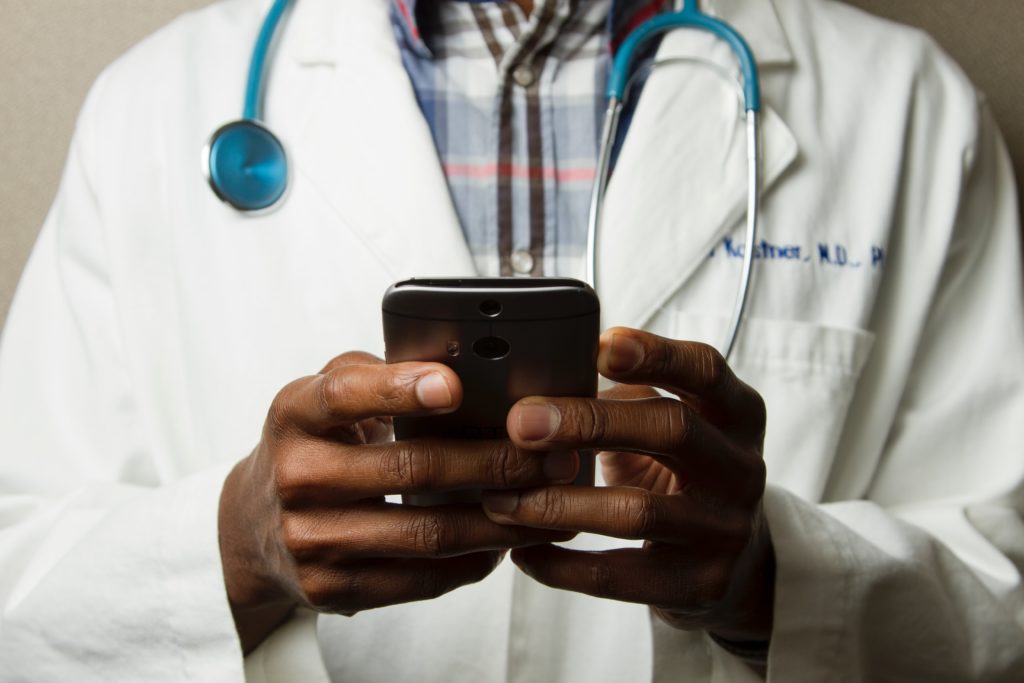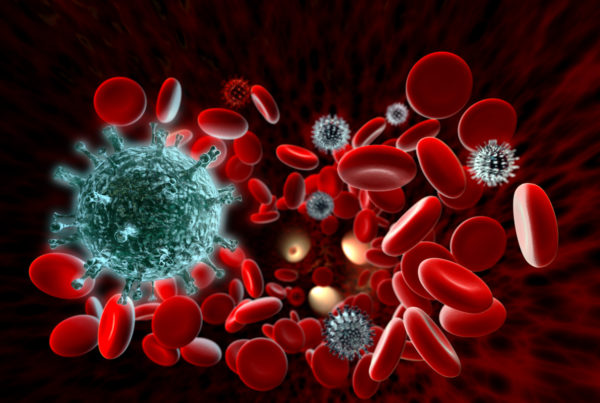Many of the medications and therapeutic products that are either sold over the counter or prescribed on a regular basis — from cold medicine to antibiotics — were once considered experimental. In most cases, it takes years (often decades) of research and development, which includes clinical trials and a vigorous review process by the U.S. Food and Drug Administration (FDA) to clear a drug or supplement for sale to consumers.
However, even well-known products that have been on the market for decades can’t guarantee results in every case, and virtually every medication or health product comes with a risk of potential side effects and safety issues, even if it’s just a bottle of basic aspirin.
For peptides, it’s a similar story. While we regard them as safe for most of our patients, that doesn’t mean they come without any risk whatsoever.
Here are some of the things to consider when buying peptides, as well as answers to common questions and safety concerns about peptide use.
 Common Questions and Concerns About Peptides and Peptide Safety
Common Questions and Concerns About Peptides and Peptide Safety
There are two questions that we hear every day regarding peptides:
- Are they safe?
- Do they work?
The short answer to both of these questions is yes — but it can be a little bit more complicated than that. In this guide, we’ll focus on the first question.
Are Peptides Safe?
Peptides are naturally occurring organic compounds that help carry out specific cellular functions, from hormone secretion to muscle repair. Like proteins, they consist of a specific number and combination of amino acids depending on their particular role. Peptide chains contain fewer amino acids than proteins, making them easier to reproduce in a lab and to produce in synthetic form for supplemental consumption (for example the largest peptides consist of 50 amino acids, whereas a protein can contain hundreds).
Peptides like CJC 1295, Thymosin Beta 4, and PT-141 are designed to help boost and improve everything from hormone secretion to sex drive.
According to the journal Bioorganic & Medicinal Chemistry:
“Peptides represent a unique class of pharmaceutical compounds, molecularly poised between small molecules and proteins, yet biochemically and therapeutically distinct from both. As intrinsic signaling molecules for many physiological functions, peptides present an opportunity for therapeutic intervention that closely mimics natural pathways. Indeed, several peptide drugs are essentially “replacement therapies” that add back or supplement peptide hormones in cases where endogenous levels are inadequate or absent. This is exemplified by the isolation and first therapeutic use of insulin in the 1920s in diabetics who did not produce sufficient quantities of the hormone.1 The practice of isolating peptides from whole animal tissue continued with the purification of adrenocorticotrophic hormone (ACTH) from livestock pituitary glands to treat a variety of endocrine disorders in patients.2
The utilization of peptides as therapeutics has evolved over time and continues to evolve with changes in drug development and treatment paradigms (Table 1). Peptides isolated from natural sources, such as insulin and ACTH, provided life-saving medicines in the first half of the 20th century. When sequence elucidation and chemical synthesis of peptides became feasible in the 1950s, synthetic oxytocin and vasopressin also entered clinical use. As venoms of arthropods and cephalopods became recognized as treasure troves of bioactive peptides, isolation of natural products from exotic sources became a popular strategy for identifying new potential therapeutics. The genomic era allowed for the identification and molecular characterization of receptors for many important endogenous peptide hormones, and industry and academia began to pursue novel peptidic ligands for these receptors.”
Peptide therapy has been around in some form for the last hundred years, with one of the most famous and lifesaving examples being the development of commercial insulin. According to the journal, over 60 peptide drugs have already been approved across the U.S., Europe, and Japan, and there are over a hundred currently in clinical development. The potential and demand for peptide therapy will likely only continue to grow.
Injectable vs. Oral Peptides
During the digestive process, the body will naturally break down peptides into their individual amino acid components before they reach the bloodstream, so injections are the recommended application method in most cases.
Potential Side Effects of Peptide Therapy
As we mentioned, even common cold medication and over the counter pain medications like Motrin or Advil come with potential side effects, and peptide therapy is no exception. Some of the most common potential side effects include:
- Itching, rash, or swelling at the injection site
- Nausea
- Headaches
- Weight fluctuations
- Retaining water
- Numbness or tingling
- Skin changes such as darkening or growth of new moles and freckles
Clinical Grade vs. Research Peptides
As is the case with most drugs, you should make sure that the product you’re purchasing is being manufactured in a safe, controlled environment. In order to ensure that the peptides you’re buying are safe, make sure that you’re buying from vendors and manufacturers that adhere to FDA guidelines.
Not all peptides are created equal, and unfortunately many products on the market can be misleading about their ingredients, sourcing, and manufacturing practices, making them potentially unsafe for human consumption. When shopping for peptides, always make sure that you’re buying clinical-grade products that only contain ingredients that have all been verified to be safe for human consumption.
Legitimate peptide vendors will have a verification process to help you find the right products for your needs and to ensure that you meet the necessary criteria to use peptide therapy safely, including but not limited to consulting with your healthcare provider. Also verify that the peptides you’re buying meet clinical-grade standards, and stay away from research peptides as they may not be entirely safe for human consumption.
 How to Safely Shop for Peptides
How to Safely Shop for Peptides
There’s no such thing as too much information when it comes to your health and wellbeing. The more you know, the better equipped you’ll be to find the products and therapies that will help you reach your health and performance goals. Remember that there’s no such thing as a “one size fits all solution” when it comes to health and wellness, and as they say in the financial world, past performance is not necessarily an indication of future success.
Here are a few due diligence tips to guide you when shopping for peptides:
Get to Know the Supply Chain
Understanding where your peptides come from should be one of your main priorities.
Knowing the safety standards and quality control methods should always be the first consideration when shopping for peptides, especially online. For starters, make sure that the products and the facilities where they have been sourced and manufactured are compliant with FDA guidelines for distribution and sale to consumers.
Red Flags to Look Out for When Shopping for Peptides Online
You shouldn’t have to hire a private investigator or spend a huge amount of time combing through vague or confusing information to know whether the product you’re buying is safe and manufactured responsibly. Without transparency it’s very difficult to know where a product comes from, how it was manufactured, whether you’re actually getting what you paid for, and whether the company you’re buying from is trustworthy and deserving of your business.
Generally speaking, here are a few things to be concerned about when you’re buying peptides online:
- A website or vendor that guarantees results or makes medical claims that sound too good to be true or downright outrageous
- Hard or impossible to find information about their vendors or manufacturing partners
- An old or outdated website with limited information
- Publishes content and product information from untrustworthy or unverifiable sources
- Limited or no customer service options (you should be able to ask questions and expect a timely and adequate response to your concerns)
- Reputation issues
- Little to no qualifying process for purchases
At InfiniPulse, our main priority is to help our clients and partners reach their goals while adhering to the highest safety standards in the industry. As such we’ve developed a comprehensive procedure to help us get to know and establish a professional relationship with each customer for the best possible results.
Our purchasing process includes:
- Understanding your goals
- Book an appointment
- Qualify for treatment
- Build your program
- Order your medication
Peptide use is not right for everyone, and we take every measure possible to ensure that our products are right for you and your needs and goals.
Look Beyond the Point of Sale Vendors and Peel Back Online Labels
Doing adequate research and performing your due diligence is especially important when buying peptides online, where it can be difficult to access the product’s list of ingredients and to verify manufacturing information. Transparency can be difficult to secure on the internet, and trusting and verifying the vendor is just the first step in ensuring that the peptides you buy are safe.
As with any consumer or health and wellness related product that you buy online, you have a right to know where the products you buy are ultimately coming from, and whether the facilities are safe and compliant with the law and health standards established by the FDA.
At InfiniPulse, the pharmacies we utilize purchase their raw material products from an FDA registered, cGMP manufacturer, and have been certified by the FDA via inspection of the facility to ensure that they are buying a highly potent and pure product. The clean room is currently compliant with both USP 797 and USP 800 standards. The pharmacy tests all of the products with two third-party labs for potency, sterility, and endotoxin testing. All of the preparations are quarantined and are not dispensed until all testing is received back from the third-party analytical labs.
These are some of the main factors that distinguish our company and set us apart in the marketplace. In addition to a commitment to transparency and offering our clients the best products possible, we partner with our clients to provide the industry knowledge and information they need to make informed decisions about their health, medical safety, and wellbeing.
(One of our trusted pharmacy partners is South Lake Pharmacy.)
Always Consult With a Trusted Medical Professional and Follow Your Doctor’s Advice
Even the most basic diet and fitness plans include a disclaimer strongly advising that you consult with a physician before taking any medication or starting a new diet or physical activity to ensure that it’s safe for you. For starters, a product or therapy that is safe and effective for one person may at worst be dangerous or at the very least be ineffective, and prove to be a waste of time and money for someone else.
Some of the factors to consider when thinking about starting peptide therapy or any new therapy include:
- Your current health and wellness profile
- Medical and family history
- Age
- Lifestyle (for example factors like being overweight/obese and smoking can increase your risk of complications and serious health problems)
- Are you currently taking any other medications?
- Clearance and recommendations from your doctor or a trusted medical professional
Practical Considerations
Human health and safety are obviously the first and most important concern when it comes to any product. After you’ve determined that a treatment like peptide therapy is right for you, you’ll want to be sure that you’re buying from a legitimate vendor and that the product you’re investing in will be authentic and as advertised so that you’re not wasting your time and money.
 General Tips for Verifying Online Vendors and Shopping Safely
General Tips for Verifying Online Vendors and Shopping Safely
One of the benefits of shopping online is that customer ratings and review systems make it possible for consumers to verify that a website is trustworthy, professional, and reliable. But just like ingredient labels on the products that you’re buying, online reviews can be misleading.
While you don’t have to read every single customer review or comb through every single review site or social media post to verify that your vendor is worthy of your business, you should do a little digging and look below the surface:
- Verify site security (make sure the site URL begins with https vs. http)
- Beware of links that redirect you to unknown third-party sites that you don’t recognize
- Avoid websites with overly spamming pop-ups or suspicious content
- Don’t provide financial information up front until you’ve established trust and are sure of the company’s legitimacy
Use Your Judgement and Find a Trusted Partner
Your health and wellbeing are your most important assets. From having enough energy to engage in the activities you love to the quality of your sleep and how well you age, the products and therapies you invest in should meet the highest standards of quality and safety. We recommend you always research your options, and working with your healthcare providers to make sure that peptide therapy is right for you.
As with any treatment, the results and potential side effects of peptide therapy will vary from person to person. Peptide therapy is not intended as a replacement or alternative to medical treatment or a healthy diet and active lifestyle, which is the cornerstone of lasting health, wellbeing, and longevity. For high functioning and athletic individuals, peptide therapy may provide an added boost to traditional therapies and treatment programs.


 Common Questions and Concerns About Peptides and Peptide Safety
Common Questions and Concerns About Peptides and Peptide Safety How to Safely Shop for Peptides
How to Safely Shop for Peptides General Tips for Verifying Online Vendors and Shopping Safely
General Tips for Verifying Online Vendors and Shopping Safely

